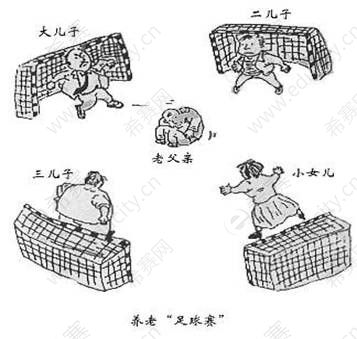2005年全国硕士研究生入学统一考试英语真题
摘要:2010年以前考研英语不分英语一和英语二,所以2010年以前的考研英语是一样的。以下是希赛网英语考试频道为大家整理的2005年考研英语真题与答案详解完整版,供大家参考学习。
2005年全国硕士研究生入学统一考试英语试题及参考答案
Directions:
Read the following text. Choose the best word(s) for each numbered blank and mark [A], [B], [C] or [D] on ANSWER SHEET 1 (10 points)
The human nose is an underrated tool. Humans are often thought to be insensitive smellers compared with animals, 1 this is largely because, 2 animals, we stand upright. This means that our noses are 3 to perceiving those smells which float through the air, 4 the majority of smells which stick to surfaces. In fact, 5 , we are extremely sensitive to smells, 6 we do not generally realize it. Our noses are capable of 7 human smells even when these are 8 to far below one part in one million.
Strangely, some people find that they can smell one type of flower but not another, 9 others are sensitive to the smells of both flowers. This may be because some people do not have the genes necessary to generate 10 smell receptors in the nose. These receptors are the cells which sense smells and send 11 to the brain. However, it has been found that even people insensitive to a certain smell 12 can suddenly become sensitive to it when 13 to it often enough.
The explanation for insensitivity to smell seems to be that brain finds it 14 to keep all smell receptors working all the time but can 15 new receptors if necessary. This may 16 explain why we are not usually sensitive to our own smells—we simply do not need to be. We are not 17 of the usual smell of our own house, but we 18 new smells when we visit someone else’s. The brain finds it best to keep smell receptors 19 for unfamiliar and emergency signals 20 the smell of smoke, which might indicate the danger of fire.
1.[A] although [B] as [C] but [D] while
2.[A] above [B] unlike [C] excluding [D] besides
3.[A] limited [B] committed [C] dedicated [D] confined
4.[A] catching [B] ignoring [C] missing [D] tracking
5.[A] anyway [B] though [C] instead [D] therefore
6.[A] even if [B] if only [C] only if [D] as if
7.[A]distinguishing [B] discovering [C] determining [D] detecting
8.[A] diluted [B] dissolved [C] dispersed [D] diffused
9.[A] when [B] since [C] for [D] whereas
10.[A] unusual [B] particular [C] unique [D] typical
11.[A] signs [B] stimuli [C] messages [D] impulses
12.[A] at first [B] at all [C] at large [D] at times
13.[A] subjected [B] left [C] drawn [D] exposed
14.[A] ineffective [B] incompetent [C] inefficient [D] insufficient
15.[A] introduce [B] summon [C] trigger [D] create
16.[A] still [B] also [C] otherwise [D] nevertheless
17.[A] sure [B] sick [C] aware [D] tired
18.[A] tolerate [B] repel [C] neglect [D] notice
19.[A] available [B] reliable [C] identifiable [D] suitable
20.[A] similar to [B] such as [C] along with [D] aside from
Section II Reading Comprehension
Part A
Directions:
Read the following four texts. Answer the questions below each text by choosing [A], [B], [C] or [D]. Mark your answers on ANSWER SHEET 1. (40 points)
Text 1
Everybody loves a fat pay rise. Yet pleasure at your own can vanish if you learn that a colleague has been given a bigger one. Indeed, if he has a reputation for slacking, you might even be outraged. Such behaviour is regarded as “all too human”, with the underlying assumption that other animals would not be capable of this finely developed sense of grievance. But a study by Sarah Brosnan and Frans de Waal of Emory University in Atlanta, Georgia, which has just been published in Nature, suggests that it is all too monkey, as well.
The researchers studied the behaviour of female brown capuchin monkeys. They look cute. They are good-natured, co-operative creatures, and they share their food readily. Above all, like their female human counterparts, they tend to pay much closer attention to the value of “goods and services” than males.
Such characteristics make them perfect candidates for Dr. Brosnan’s and Dr. de Waal’s study. The researchers spent two years teaching their monkeys to exchange tokens for food. Normally, the monkeys were happy enough to exchange pieces of rock for slices of cucumber. However, when two monkeys were placed in separate but adjoining chambers, so that each could observe what the other was getting in return for its rock, their behaviour became markedly different.
In the world of capuchins grapes are luxury goods (and much preferable to cucumbers). So when one monkey was handed a grape in exchange for her token, the second was reluctant to hand hers over for a mere piece of cucumber. And if one received a grape without having to provide her token in exchange at all, the other either tossed her own token at the researcher or out of the chamber, or refused to accept the slice of cucumber. Indeed, the mere presence of a grape in the other chamber (without an actual monkey to eat it) was enough to induce resentment in a female capuchin.
The researchers suggest that capuchin monkeys, like humans, are guided by social emotions. In the wild, they are a co-operative, group-living species. Such co-operation is likely to be stable only when each animal feels it is not being cheated. Feelings of righteous indignation, it seems, are not the preserve of people alone. Refusing a lesser reward completely makes these feelings abundantly clear to other members of the group. However, whether such a sense of fairness evolved independently in capuchins and humans, or whether it stems from the common ancestor that the species had 35 million years ago, is, as yet, an unanswered question.
21. In the opening paragraph, the author introduces his topic by ________.
[A] posing a contrast [B] justifying an assumption
[C] making a comparison [D] explaining a phenomenon
22. The statement “it is all too monkey” (Last line, Paragraph l) implies that ________.
[A] monkeys are also outraged by slack rivals [B] resenting unfairness is also monkeys’ nature
[C] monkeys, like humans, tend to be jealous of each other[D] no animals other than monkeys can develop such emotions
23. Female capuchin monkeys were chosen for the research most probably because they are ________.
[A] more inclined to weigh what they get [B] attentive to researchers’ instructions
[C] nice in both appearance and temperament [D] more generous than their male companions
24. Dr. Brosnan and Dr. de Waal have eventually found in their study that the monkeys ________.
[A] prefer grapes to cucumbers [B] can be taught to exchange things
[C] will not be co-operative if feeling cheated [D] are unhappy when separated from others
25. What can we infer from the last paragraph?
[A] Monkeys can be trained to develop social emotions.
[B] Human indignation evolved from an uncertain source.
[C] Animals usually show their feelings openly as humans do.
[D] Cooperation among monkeys remains stable only in the wild.
Text 2
Do you remember all those years when scientists argued that smoking would kill us but the doubters insisted that we didn’t know for sure? That the evidence was inconclusive, the science uncertain? That the antismoking lobby was out to destroy our way of life and the government should stay out of the way? Lots of Americans bought that nonsense, and over three decades, some 10 million smokers went to early graves.
There are upsetting parallels today, as scientists in one wave after another try to awaken us to the growing threat of global warming. The latest was a panel from the National Academy of Sciences, enlisted by the White House, to tell us that the Earth’s atmosphere is definitely warming and that the problem is largely man-made. The clear message is that we should get moving to protect ourselves. The president of the National Academy, Bruce Alberts, added this key point in the preface to the panel’s report: “Science never has all the answers. But science does provide us with the best available guide to the future, and it is critical that our nation and the world base important policies on the best judgments that science can provide concerning the future consequences of present actions.”
Just as on smoking, voices now come from many quarters insisting that the science about global warming is incomplete, that it’s OK to keep pouring fumes into the air until we know for sure. This is a dangerous game: by the time 100 percent of the evidence is in, it may be too late. With the risks obvious and growing, a prudent people would take out an insurance policy now.
Fortunately, the White House is starting to pay attention. But it’s obvious that a majority of the president’s advisers still don’t take global warming seriously. Instead of a plan of action, they continue to press for more research—a classic case of “paralysis by analysis”.
To serve as responsible stewards of the planet, we must press forward on deeper atmospheric and oceanic research. But research alone is inadequate. If the Administration won’t take the legislative initiative, Congress should help to begin fashioning conservation measures. A bill by Democratic Senator Robert Byrd of West Virginia, which would offer financial incentives for private industry, is a promising start. Many see that the country is getting ready to build lots of new power plants to meet our energy needs. If we are ever going to protect the atmosphere, it is crucial that those new plants be environmentally sound.
26. An argument made by supporters of smoking was that ________.
[A] there was no scientific evidence of the correlation between smoking and death
[B] the number of early deaths of smokers in the past decades was insignificant
[C] people had the freedom to choose their own way of life
[D] antismoking people were usually talking nonsense
27. According to Bruce Alberts, science can serve as ________.
[A] a protector [B] a judge [C] a critic [D] a guide
28. What does the author mean by “paralysis by analysis” (Last line, Paragraph 4)?
[A] Endless studies kill action. [B] Careful investigation reveals truth.
[C] Prudent planning hinders progress. [D] Extensive research helps decision-making.
29. According to the author, what should the Administration do about global warming?
[A] Offer aid to build cleaner power plants. [B] Raise public awareness of conservation.
[C] Press for further scientific research. [D] Take some legislative measures.
30. The author associates the issue of global warming with that of smoking because ______.
[A] they both suffered from the government’s negligence [B] a lesson from the latter is applicable to the former
[C] the outcome of the latter aggravates the former [D] both of them have turned from bad to worse
Text 3
Of all the components of a good night’s sleep, dreams seem to be least within our control. In dreams, a window opens into a world where logic is suspended and dead people speak. A century ago, Freud formulated his revolutionary theory that dreams were the disguised shadows of our unconscious desires and fears; by the late 1970s, neurologists had switched to thinking of them as just “mental noise”—the random byproducts of the neural-repair work that goes on during sleep. Now researchers suspect that dreams are part of the mind’s emotional thermostat, regulating moods while the brain is “off-line.” And one leading authority says that these intensely powerful mental events can be not only harnessed but actually brought under conscious control, to help us sleep and feel better. “It’s your dream,” says Rosalind Cartwright, chair of psychology at Chicago’s Medical Center. “If you don’t like it, change it.”
Evidence from brain imaging supports this view. The brain is as active during REM (rapid eye movement) sleep—when most vivid dreams occur—as it is when fully awake, says Dr. Eric Nofzinger at the University of Pittsburgh. But not all parts of the brain are equally involved; the limbic system (the “emotional brain”) is especially active, while the prefrontal cortex (the center of intellect and reasoning) is relatively quiet. “We wake up from dreams happy or depressed, and those feelings can stay with us all day.” says Stanford sleep researcher Dr. William Dement.
The link between dreams and emotions shows up among the patients in Cartwright’s clinic. Most people seem to have more bad dreams early in the night, progressing toward happier ones before awakening, suggesting that they are working through negative feelings generated during the day. Because our conscious mind is occupied with daily life we don’t always think about the emotional significance of the day’s events—until, it appears, we begin to dream.
And this process need not be left to the unconscious. Cartwright believes one can exercise conscious control over recurring bad dreams. As soon as you awaken, identify what is upsetting about the dream. Visualize how you would like it to end instead; the next time it occurs, try to wake up just enough to control its course. With much practice people can learn to, literally, do it in their sleep.
At the end of the day, there’s probably little reason to pay attention to our dreams at all unless they keep us from sleeping or “we wake up in a panic,” Cartwright says. Terrorism, economic uncertainties and general feelings of insecurity have increased people’s anxiety. Those suffering from persistent nightmares should seek help from a therapist. For the rest of us, the brain has its ways of working through bad feelings. Sleep—or rather dream—on it and you’ll feel better in the morning.
31. Researchers have come to believe that dreams ________.
[A] can be modified in their courses [B] are susceptible to emotional changes
[C] reflect our innermost desires and fears [D] are a random outcome of neural repairs
32. By referring to the limbic system, the author intends to show ________.
[A] its function in our dreams [B] the mechanism of REM sleep
[C] the relation of dreams to emotions [D] its difference from the prefrontal cortex
33. The negative feelings generated during the day tend to ________.
[A] aggravate in our unconscious mind [B] develop into happy dreams
[C] persist till the time we fall asleep [D] show up in dreams early at night
34. Cartwright seems to suggest that ________.
[A] waking up in time is essential to the ridding of bad dreams
[B] visualizing bad dreams helps bring them under control
[C] dreams should be left to their natural progression
[D] dreaming may not entirely belong to the unconscious
35. What advice might Cartwright give to those who sometimes have bad dreams?
[A] Lead your life as usual. [B] Seek professional help.
[C] Exercise conscious control. [D] Avoid anxiety in the daytime.
Text 4
Americans no longer expect public figures, whether in speech or in writing, to command the English language with skill and gift. Nor do they aspire to such command themselves. In his latest book, Doing Our Own Thing: The Degradation of language and Music and Why We Should Like, Care, John McWhorter, a linguist and controversialist of mixed liberal and conservative views, sees the triumph of 1960s counter-culture as responsible for the decline of formal English.
Blaming the permissive 1960s is nothing new, but this is not yet another criticism against the decline in education. Mr. McWhorter’s academic speciality is language history and change, and he sees the gradual disappearance of “whom”, for example, to be natural and no more regrettable than the loss of the case-endings of Old English.
But the cult of the authentic and the personal, “doing our own thing”, has spelt the death of formal speech, writing, poetry and music. While even the modestly educated sought an elevated tone when they put pen to paper before the 1960s, even the most well regarded writing since then has sought to capture spoken English on the page. Equally, in poetry, the highly personal, performative genre is the only form that could claim real liveliness. In both oral and written English, talking is triumphing over speaking, spontaneity over craft.
Illustrated with an entertaining array of examples from both high and low culture, the trend that Mr. McWhorter documents is unmistakable. But it is less clear, to take the question of his subtitle, why we should, like, care. As a linguist, he acknowledges that all varieties of human language, including non-standard ones like Black English, can be powerfully expressive—there exists no language or dialect in the world that cannot convey complex ideas. He is not arguing, as many do, that we can no longer think straight because we do not talk proper.
Russians have a deep love for their own language and carry large chunks of memorized poetry in their heads, while Italian politicians tend to elaborate speech that would seem old-fashioned to most English-speakers. Mr. McWhorter acknowledges that formal language is not strictly necessary, and proposes no radical education reforms—he is really grieving over the loss of something beautiful more than useful. We now take our English “on paper plates instead of china”. A shame, perhaps, but probably an inevitable one.
36. According to McWhorter, the decline of formal English ________.
[A] is inevitable in radical education reforms
[B] is but all too natural in language development
[C] has caused the controversy over the counter-culture
[D] brought about changes in public attitudes in the 1960s
37. The word “talking” (Line 6, Paragraph 3) denotes ________.
[A] modesty [B] personality
[C] liveliness [D] informality
38. To which of the following statements would McWhorter most likely agree?
[A] Logical thinking is not necessarily related to the way we talk.
[B] Black English can be more expressive than standard English.
[C] Non-standard varieties of human language are just as entertaining.
[D] Of all the varieties, standard English can best convey complex ideas.
39. The description of Russians’ love of memorizing poetry shows the author’s ________.
[A] interest in their language [B] appreciation of their efforts
[C] admiration for their memory [D] contempt for their old-fashionedness
40. According to the last paragraph, “paper plates” is to “china” as ________.
[A] “temporary” is to “permanent” [B] “radical” is to “conservative”
[C] “functional” is to “artistic” [D] “humble” is to “noble”
Part B
Directions:
In the following text, some sentences have been removed. For Questions 41-45, choose the most suitable one from the list A-G to fit into each of the numbered blanks. There are two extra choices, which do not fit in any of the gaps. Mark your answers on ANSWER SHEET 1. (10 points)
Canada’s premiers (the leaders of provincial governments), if they have any breath left after complaining about Ottawa at their late July annual meeting, might spare a moment to do something, together, to reduce health-care costs.
They’re all groaning about soaring health budgets, the fastest-growing component of which are pharmaceutical costs.
(41) ____________
What to do? Both the Romanow commission and the Kirby committee on health care—to say nothing of reports from other experts—recommended the creation of a national drug agency. Instead of each province having its own list of approved drugs, bureaucracy, procedures and limited bargaining power, all would pool resources, work with Ottawa, and create a national institution.
(42) _____________
But “national” doesn’t have to mean that. “National” could mean interprovincial—provinces combining efforts to create one body.
Either way, one benefit of a “national” organization would be to negotiate better prices, if possible, with drug manufacturers. Instead of having one province—or a series of hospitals within a province—negotiate a price for a given drug on the provincial list, the national agency would negotiate on behalf of all provinces.
Rather than, say, Quebec, negotiating on behalf of seven million people, the national agency would negotiate on behalf of 31 million people. Basic economics suggests the greater the potential consumers, the higher the likelihood of a better price.
(43) _____________
A small step has been taken in the direction of a national agency with the creation of the Canadian Co-ordinating Office for Health Technology Assessment, funded by Ottawa and the provinces. Under it, a Common Drug Review recommends to provincial lists which new drugs should be included. Predictably, and regrettably, Quebec refused to join.
A few premiers are suspicious of any federal-provincial deal-making. They (particularly Quebec and Alberta) just want Ottawa to fork over additional billions with few, if any, strings attached. That’s one reason why the idea of a national list hasn’t gone anywhere, while drug costskeep rising fast.
(44) _____________
Premiers love to quote Mr. Romanow’s report selectively, especially the parts about more federal money. Perhaps they should read what he had to say about drugs: “A national drug agency would provide governments more influence on pharmaceutical companies in order to constrain the ever-increasing cost of drugs.”
(45) _____________
So when the premiers gather in Niagara Falls to assemble their usual complaint list, they should also get cracking about something in their jurisdiction that would help their budgets and patients.
[A] Quebec’s resistance to a national agency is provincialist ideology. One of the first advocates for a national list was a researcher at Laval University. Quebec’s Drug Insurance Fund has seen its costs skyrocket with annual increases from 14.3 per cent to 26.8 per cent!
[B] Or they could read Mr. Kirby’s report: “the substantial buying power of such an agency would strengthen the public prescription-drug insurance plans to negotiate the lowest possible purchase prices from drug companies.”
[C] What does “national” mean? Roy Romanow and Senator Michael Kirby recommended a federal-provincial body much like the recently created National Health Council.
[D] The problem is simple and stark: health-care costs have been, are, and will continue to increase faster than government revenues.
[E] According to the Canadian Institute for Health Information, prescription drug costs have risen since 1997 at twice the rate of overall health-care spending. Part of the increase comes from drugs being used to replace other kinds of treatments. Part of it arises from new drugs costing more than older kinds. Part of it is higher prices.
[F] So, if the provinces want to run the health-care show, they should prove they can run it, starting with an interprovincial health list that would end duplication, save administrative costs, prevent one province from being played off against another, and bargain for better drug prices.
[G] Of course, the pharmaceutical companies will scream. They like divided buyers; they can lobby better that way. They can use the threat of removing jobs from one province to another. They can hope that, if one province includes a drug on its list, the pressure will cause others toinclude it on theirs. They wouldn’t like a national agency, but self-interest would lead them to deal with it.
Part C
Directions:
Read the following text carefully and then translate the underlined segments into Chinese. Your translation should be written clearly on ANSWER SHEET 2. (10 points)
It is not easy to talk about the role of the mass media in this overwhelmingly significant phase in European history. History and news become confused, and one’s impressions tend to be a mixture of skepticism and optimism. (46)Television is one of the means by which these feelings are created and conveyed—and perhaps never before has it served so much to connect different peoples and nations as in the recent events in Europe. The Europe that is now forming cannot be anything other than its peoples, their cultures and national identities. With this in mind we can begin to analyze the European television scene. (47) In Europe, as elsewhere, multi-media groups have been increasingly successful; groups which bring together television, radio, newspapers, magazines and publishing houses that work in relation to one another. One Italian example would be the Berlusconi group, while abroad Maxwell and Murdoch come to mind.
Clearly, only the biggest and most flexible television companies are going to be able to compete in such a rich and hotly-contested market. (48) This alone demonstrates that the television business is not an easy world to survive in, a fact underlined by statistics that show that out of eighty European television networks, no less than 50% took a loss in 1989.
Moreover, the integration of the European community will oblige television companies to cooperate more closely in terms of both production and distribution.
(49) Creating a “European identity” that respects the different cultures and traditions which go to make up the connecting fabric of the Old Continent is no easy task and demands a strategic choice—that of producing programs in Europe for Europe. This entails reducing our dependence on the North American market, whose programs relate to experiences and cultural traditions which are different from our own.
In order to achieve these objectives, we must concentrate more on co-productions, the exchange of news, documentary services and training. This also involves the agreements between European countries for thecreation of a European bank for Television Production which, on the model of the European Investments Bank, will handle the finances necessary for production costs. (50)In dealing with a challenge on such a scale, it is no exaggeration to say, “United we stand, divided we fall”—and if I had to choose a slogan it would be “Unity in our diversity.” A unity of objectives that nonetheless respect the varied peculiarities of each country.
Section III Writing
Part A
51. Directions:
Two months ago you got a job as an editor for the magazine Designs & Fashions. But now you find that the work is not what you expected. You decide to quit. Write a letter to your boss, Mr. Wang, telling him your decision, stating your reason(s), and making an apology.
Write your letter with no less than 100 words. Write it neatly on ANSWER SHEET 2. Do not sign your own name at the end of the letter; use “Li Ming” instead. You do not need to write the address. (10 points)
Part B
52. Directions:
Write an essay of 160-200 words based on the following drawing. In your essay, you should first describe the drawing, then interpret its meaning, and give your comment on it.
You should write neatly on ANSWER SHEET 2. (20 points)

今年的考研是新考研大纲要求的第一年,语段填空和小作文被首次列为考试项目,而且难度比较大,尤其选材和题型将决定以后的命题趋势。今年试题的难度是偏难的,尤其是阅读的A,B两个部分,完型的难度应该是紧随其后。今年的试题有以下几个特点:
一、考察学生对篇章上下文的一致性的考察,注重对文章的段落之间的联系。
二、文章以对比和类比性的修辞手法为主,比较强调逻辑思维能力的考察,是高层次的考研阅读考察。
三、选项在原文的位置具有隐蔽性,几乎85%的选项的考察都不能对应段落的某个句子,需要通过字里行间的推理和分析。
四、阅读A、B部分的选项的干扰性特别大,选项的内容文章都出现,但要选择最佳的和最符合原文的答案,没有一个选项和文章完全相同。
五、作文更加考察学生的词语和句型的多样性,大作文的字数要求比去年要少。大作文是批判性的风格,要求分析原因和解决问题。
完型填空
完型填空这道题主体是对比性的文章,今年的完型填空题比较强调对文章开始部分的把握,以及逻辑关系的确认。本文是一篇科技方面的文章,主要内容是我们一般对人类鼻子的等值度有误解,科学的研究发现,其实我们人类的鼻子比我们所理解到的敏感度更强,本文首句是文章的主题,它的意思是“人们对鼻子的嗅觉作用低估了”。请注意英语行文的逻辑,这是一个大众观点,作者可能标新立异,即否定大众观点。第一段对比的是大众的观点和作者的观点,主体说的是我们一般人是直立行走的,就没有办法感觉到靠近地面的气味,篇章的第二个自然段主要谈论的是时间长了以后,他们仍然可以感知到这个味道,篇章第三个自然段,也就是说我们的大脑不是不安排我们的鼻子去闻所有的味道。
第一题考察的是逻辑题,选项应该是B,选B答案的unlike,表示因果关系;人们一般在“A”和“C”之间徘徊,体现的是一种对比关系,应该选“B”选项“unlike”;
第二题是对比,应该选B选项;
第三题接下来第三句话对第二句话的意思进行说明,指出“人的鼻子局限于某些嗅觉——飘浮于空中的嗅觉”,那么第三空选“A”“limited”比较合适。干扰性大的有的选项是D。我们人是直立的,自然界存在的味道,我们对它的感知是有限的;
第四题可能出在两个之间,就是人不是不去感知,而是因为直立把许多味道错过了,我们应该选择C;由前一句话可知,“人的鼻子主要捕捉空中漂浮的嗅觉,而对于黏附于物体表面的嗅觉就可能忽略”,这样“C”选项“missing”为正确答案;
第五题尽管我们没有感知到很多地面的气味,如果我们感知的话还是可以感知到的,所以应该选择B;这里对文章开始的大众观点进行了转折,注意提示词“In fact”,正确答案“B”“though”,表示了这种转折关系,为正确答案。如果选“C”或“D”,那么就与“In fact”无法搭配;
第六题选的是A,假设关系;是完型填空当中常考的一种关系——让步关系,意思是“即使我们一般不会意识到某些嗅觉,但我们仍然对这些东西感觉灵敏”。符合这一要求的只有“A”“even if”;
第七题选的是D,一个假设性的,鼻子用来干吗的?是用来感知的,我们选择D;要求选一个跟嗅觉能搭配的动词,那么,“D”选项“detecting”是对的;
第八题,就它的意思是“即使这些嗅觉的浓度冲淡到原来的百万分之一,人们仍然能够捕捉到这些嗅觉”是A;词汇的辨认。如果能够知道“A”选项“diluted”表示“冲淡”的意思,就能选到这个正确答案;
第九题选择的是D,要填的东西必须表达这种对比。很明显,“D”选项“whereas”是正确答案。表示对比关系;
第十题选B,“B”选项“particular”是正确答案,其他选项放到原文都不符合逻辑,我们鼻子对某些类别的味道很敏感;
十一题是一致性的题,考察和上次说的我们鼻子的感知信号是一致的,注意句子中间表示并列关系的连词“and”。前半句说“这些接收器能够感觉到嗅觉”,因此“C”选项“messages”是正确答案;
十二题是根据句子中间的意思,“刚开始对某种嗅觉不灵敏的人能够灵敏起来”,这表示嗅觉灵敏度变化的一个过程,而第十二个空涉及的是第一个过程,所以应该是“A”选项“at first”。
十三题是接触到某种气味,常见搭配“exposed to”(接触)。因此,“D”选项“exposed to”为正确答案;
十四题,我们的大脑不是把所有的器官调用的,由该句半部分可以看出:大脑在捕捉嗅觉时是作出了选择的,一方面捕捉必不可少的嗅觉,另一方面又关闭一些嗅觉接收器,这样使嗅觉接收达到最有效的程度。所以选“C”选项“inefficient”;
十五题,答案应该选择B,这个题估计出错的考生是最头疼的;
十六题是逻辑题,这里指上述提高嗅觉接收有效率的原理,也能解释另外一种现象:每个人对于自己的嗅觉不太敏感。“also”是正确答案,选择B选项;
十七题选择C;一个搭配:“be aware of”(意识到),因此正确答案是“C”“aware”。应该是十七题谓语动词的同义词,也就是“意识到”、“注意到”的意思,那么“D”选项“notice”为正确答案;
十八题也是一个替换,鼻子要去感知,我们用D;
十九题估计出错的考生很多,我们选A,考固定搭配“available for”(可用于),那么“A”选项“available”为正确答案;
二十题在这个空的前面提到“不熟悉的和紧急的信号”,后面提到“对烟雾的嗅觉”,所以,“B”选项为正确答案“such as”。
阅读理解
阅读理解部分,《经济学家》(The Economist)今年仍然是一个重头戏。如第一篇文章和第四篇文章均选自《经济学家》杂志,而第三篇杂志讲全球变暖的,这个杂志在去年也选过文章,就是《新闻周刊》(Newsweek)。今年的阅读的特点是:第一,主打的是逻辑,对比或者类比性的逻辑居多,每篇几乎都涉及到这样的观点。第二,注意考察学生区分人物和作者观点的能力。第三,题干部分设置的干扰选项比较多,错误答案非常接近原文。第四,答案的隐蔽性很强,考察段落之间的关系。
第一篇文章
第一篇文章是讲猴子有一种天然的公平意识,文章本身难度不是太大,一开始做了一个类比,讲人的公平意识。这篇对比性的文章两个方面要理解,第一:人类和猴子之间都有一种近似的表现,当受到不公正待遇的时候,都有义愤填膺的感觉,如果把握这个逻辑,就是类比的逻辑。第二:最后两段关于选择实验的对象以及实验的结果。
21题,我们应该选择C,考察第一段的写作手法,明显用的是猴和人之间的相似形的比较关系。22题答案是B,也是在把猴子和人做类比,指出猴子与人一样都抱怨不公平,23题答案选A,这个是事实细节题,答案是根据文章第三段第一句话得到的,雌性的猴子被选择做研究,是因为她们更加注重她们获得的东西。24题答案选择C,他们最终的发现是什么,篇章最后两段反复重复,如果没有受到公平的话。25题选择B。这篇文章第一段和最后一段都出现一个词,“假设”为什么猴和人都有这种心理反应,这个问题没有得以解决。
第二篇文章
第二篇文章是一篇一般的时事性文章,这也是一篇类比,考完了以后很多考生说这篇文章讲抽烟,其实不是的,作者讲抽烟是想说明现在的温室效应,也是一种类比,许多人抽烟没有人去管,因为缺乏足够的证据,咱们各国政府也不管温室效应,也是同样的原因。中心讲的是世界各个政府对温室效应的解决的态度,篇章的关键词围绕这样三个问题展开,第一个就是证据不充足。第二是科学的意义。第三是制定法律,尤其最后三段大量出现立法和法规的现象。
26题选A,说有些支持抽烟的人是他们的论调,篇章中反复说没有充足的证据这层意思。27应该选D,科学应该作为一个指导性,答案是根据文章第2段的最后两句话得出的。28题是猜单词题,单词所在的句子的意思是有些人总要科学证据,结果抹杀了行动。所以选A。29答案选择D,采取某种法律措施,法律在最后的段落重复的最多。30题作者谈的抽烟的教训对我们温室处理也是一样的,选B。
第三篇文章
第三篇文章中心主干是这样的,第一段开始就确立了话题,确立了作者的态度、观点和论点以后,整篇文章都是围绕第一段展开的,第三篇文章讲的是一个心理学方面梦的问题,文章开篇就说梦的原理以及梦是可以控制的,然后讲梦与情感的关系,结尾再次强调梦是可以控制的。文章有三个关键词,第一个关键词是梦,第二个是睡眠,第三个词是控制,还有一个是情感意识。
第31题研究者们好像认为梦,这完全从篇章的开头和结尾都强调重复说明梦是可以控制的,选A。32题作者提到梦和情感之间是有关系的,情感是段落的重点,选C。33题,这里有一个在白天有消极的情感出现的时候,在梦里是有的,所以我们选D。34题他询问作者的观点,整篇文章透露的就是我们的梦是可以控制的,这是文章的核心意思,而且该题有may这样的委婉情态动词,以前就强调一定正确,选项是原文的替换,意思是梦是不完全是潜意识的范围,选D。35题答案选A,问如果有噩梦出现怎么办,像以前一样过,是在最后一段谈到的。
第四篇文章
第四篇文章的专业性比较强,讲美国人由于随意性,所以英语的语言也变得相当随意的主旨,对很多对语言学不敏感的同学是很难的,因为专业性太强。这篇文章总体同样属于一个对比性的文章,关键词围绕正式用语和非正式用语这里面的变化。开篇是在说什么导致英语的衰败,不是那么正式了。中间的部分是在讲语言的变化是不可阻挡的。结尾继续讲俄国人对本国语言的最终是值得我们赞赏的。
36题答案是B。作者认为是不可避免在语言的发展中,而A是讲教育改革不可避免。37题,原文反复出现的是语音的正式性和非正式性,所以这个题选D。38题问的是人物的观点,所以要区分作者的观点,美国人语言衰败指的并不是逻辑思维也是衰败的,所以选择A。39题作者提到俄国人喜欢背诗,作者在文章是赞赏的语气,称赞他们努力维护本国的语言。40题,这个题也是一个类比题,他说咱们经常纸碟和瓷器之间的关联,纸盒子不漂亮可以盛饭,瓷器在大餐聚会时被使用,讲究美食性。所以答案选C,是一种功能性和美食性的关联性和关系性。
阅读的完型填段
今年的七选五题型比大纲上的题偏难一些,做这种题要注意三点:第一,这种题更多是一致性和连贯性的思维,整篇文章应该和第一自然段保持一致和连贯,所添的语段的一致性既要保持上下文的话题一致,也就是满足上文重复率较高的词在下文的空格中的答案必须满足。连贯性指的是要满足结构的完整,上下文衔接很自然。第二,大纲样题出题形式很多,有句题、句尾题、句首题、段落题,而今年的考题通篇选段,全部是段落题。第三,既然是非等额的选项,也就是必然有两上选项是干扰项,干扰项在结构上非常像正确答案,而且与正确答案的判别是很小的,所以在做每个空时,可能受到干扰项的干扰,一定要注意哪个更加接近原文的意思。关于选项还有一点,这种题目做题的时候,会存在着非常明显的连带规律。也就是说,前一个题目属于做错了,都会影响后面的题目。每道题目之间都有一种无形的联系,每做错一道题就会减少后面一个题做对可能性的概率。
文章的大致意思是加拿大各个省的省长在七月份的年会的时候,他们还有一点力气去抱怨抱怨关于如何减轻现在的健康保健计划的成本,接下来他们又说到,他们对高涨的健康预算怨声载道,所以文章主题非常的清楚。健康福利费支出太高,药价太高是其中非常重要的一个方面,所以我们这篇文章的主题应该是药价太高究竟该怎么解决?如果考生能够做到以下四个要点,至少我想在排除干扰的时候就很容易了,比如第一个就是省份,第二个是抱怨这个词,第三个是健康保健医疗药品,第四个是成本。
文章的脉络非常清楚,先提出问题:药价太高,再提出解决办法:建立全国代理机构,再接着谈到建立一个全国代理机构会遇到很多麻烦,一个阻力来自于药厂,以及如何解决这个问题;还有一个阻力来自于这些省本身以及如何解决问题,最后文章引用两个希赛网的论述,再次强调建立这样一个全国性机构的重要性。
41题可以根据连贯性选E,41题上面一段讲的中心是药品价钱,我们分析了这七个选项以后发觉,选项E在归纳句子,和上面的也有连贯性,哪一个选项当中包含了药价这个概念呢?只有一个选项“E”,“E”选项说根据某某机构的观点,自从1997年以来,处方药价格增长速率是全国健康福利支出增长速度的2倍。这种增长一部分是因为药品代替了某些治疗手段,一部分是因为新药品的价格总是比老药品价格高。那么这个选项说的就是这样一个事实,所以41空选“E”。
42题如果只要上下一加就很明显发现,42句上下出现最多的就是这个词,空后文字非常典型,提到“But”national “doesn't have to mean that。很明显这是一个转折,表明42空所填的选项,要和这一句话形成转折关系,而且42空里面要出现“national”的定义,就是说很有可能要出现“national”这个词。哪一个选项里面包含这个词呢?“C”选项。“C”选项提到,national是什么意思。
43题在上一段所讲的是要对药品进行一种控制,空前文字举例说明全国性代理机构的好处,举了魁北克的例子,选项应该围绕着这个问题来选,正确答案选“G”,很好的保持了文章的一致性,“G”选项说“当然药厂不会同意,他们喜欢散客买家,那样他们可以暗中运作,他们甚至可能会威胁着要把一个省的工作机会转移到另一个省,但是,处于利益的驱使,他们又不得不这样做。”43空所以选“G”。
44题有两个选择可以选进去的,我们可以根据这篇文章总体的情感来判断,前面一段直接讲的就是人们对于整体药品的价格,以及的机构都是抱怨的态度,空前有两段文字,第一段最后提到魁北克拒绝加入全国性代理机构。而第二段提到有很多省的政府官员对于这种全国性代理机构持怀疑态度,可以发现这里仍然推行全国性代理机构的设想所遇到的阻力,接下来当然会谈到怎么处理这个阻力?“F”选项,非常明确的说明了“所以如果某些省想完成健康福利的任务,他们就必须有完成这个任务的能力,他们还必须节约管理费用,防止一个省和另一个省之间的斗争,而且还要尽量争取更好的药价。”所以A和F相比,F要更符合这篇文章情感的一致性,所以选F,这个空很多同学填的都是“A”,“A”选项说:“魁北克抵制含有性代理机构,是这个省自己的意识形态问题”。
45题上面出现了一个“人们怎么样说”最后一段也讲了,他们聚在首都,不断谈论这个事情, 45题应该是B,有些人也在用另外一篇报道进行一种抱怨。空前文字提到,也许这些官员们应该读一读Roy Romanow关于药品的论述,当然这个空应该接着谈,还可以读一读前面文章提到的另外一个人Micael Kirby的关于药品的论述,这两个人在前面的文章里面都是同时被提到的,而且他们都提倡说建立一个这样全国性机构非常不错,所以45空选“B”。
翻译部分
这次讲的是传媒中非常传统的话题“电视”。所以,整个翻译这一块基本上可以直接翻译划线的句子,基本上能够传达翻译所需要传达的全部信息,对上下文的依赖并不是像从前的考题那么强。当然,要把整个句子翻得非常的通顺,还是需要下一番工夫的。
这一次的翻译五个句子,除了最后一个题,其他的四个句子都是复杂句,就是主句里面套从句。句子结构的复杂,不亚于往年。我刚才讲,似乎容易一些,那是因为题材是大家所熟悉的。
Television is one of the means by which these feelings are created and conveyed-and perhaps never before has it served so much to connect different peoples and nations as in the recent
被动语态的翻译,技巧就是通常把英文的被动语态翻译成中文的主动语态,这在翻译的技巧里面叫语态转换翻译。这样的话,我们把它通顺一下就可以翻成这样“电视是制造和传播这种情绪的媒介之一(手段之一、方式之一)”,都是正确答案。
下面的就是倒装句,把一个否定的词儿放在句子前面,形成一个倒装。这句话的翻译一定要注意,要把整个的句子看懂,进行词性、语序的转换。你不能上来就说“从来也没有”,这样翻译不下去。所以,把这题的“从来也没有如此大的作用”放在句子的末尾处。所以,这也是翻译的一个转换技巧。
译文:在加强不同的民族和之间的联系方面,电视也许还从来没有像在最近的欧洲事件中那样起过如此大的作用。
In Europe, as elsewhere, multi-media groups have been increasingly successful: groups which bring together television, radio, newspapers, magazines and publishing house that work in relation to one another.
Increasingly successful就是“越来越成功了”,相信大家都可以翻译出来。前面的话几乎可以照直翻译,“在欧洲就像在其他地方一样多媒体集团越来越成功了”。当然根据中文的表达可以把句子加以转换,他说“欧洲和在其他地方一样”,最好翻译成“和其他地方一样,欧洲的多媒体集团越来越成熟”。下面半句话有一个定语从句离主干的句子比较远,在句子的末处,但是翻译的时候必须要提前。
翻译:这些集团把相互关系密切的电视台、电台、报纸、杂志、出版社组合到了一起。
This alone demonstrates that the television business is not an easy world to survive in, a fact underlined by statistics that show that out of eighty European television networks, no less than 50% took a loss in 1989.
代词要依赖一下上下文讲的是什么?代词的后面有一个副词“alone”,这个“alone”是一个重点,“alone”这个的翻译应该是“仅此一点”的意思,“仅这一点就表明在电视行业里生存不那么容易”。这句话要注意什么呢?切忌不要翻译成“电视行业生存不那么容易”,要翻译成“在电视行业里生存是不那么容易的”。
还有一个稍微难一点的结构,下面一个“underlined”,考了它一个特殊的意义,这是“强调”或“凸显”的意思。
翻译:“仅这一点就表明在电视待业里生存不那么容易,这个事实通过统计数字也是一目了然,统计表明在80家欧洲电视网中1989年出现亏损的不下50%”。
In dealing with a challenge on such a scale, it is no exaggeration to say, “United we stand, divided we fall”.
这个句子是这样说的,“在应付一个如此规模的挑战过程中,我们可以毫不夸张地说,团结,我们就会站起来;分裂,我们就会倒下去。”
写作
小作文
两个月前,你得到了一份工作,担任设计与时尚杂志的编辑。但是现在你发现工作并不是你想象当中那么如意,所以你决定辞职。写一封信给你的老板王先生,告诉他你的决定,说明你的理由,表示你的歉意。那么这封信,实际上就是一封辞职信。辞职信,严格意义来说,也就是道歉信的一种。
首先要注意应用文的格式并准确理解提纲的要求。另外应该在这几个方面注意:第一,这篇应用文中要避免写的太空洞,言之无物,当谈辞职时要交代清楚背景,不能只说我不辞职,要谈谈辞职的准备时间、原因,你不能说我不适合这个工作,应该再具体一点,比如举一个例子,比如我不适应这个公司的工作强度、报酬方式等等。第二,你要注意辞职的语气,你是下级,对方是上级,下级对上级在语气和口味中一定要客气一点。第三,安排好你的逻辑,先说辞职的过程,再谈辞职的原因,最后谈你希望你能顺利此致,并对未来有展望。
Two months ago you got a job as an editor for the editor for the magazine Design fashions. But now you find that the work is not what you expected. You decision to quit. Write a letter to your boss Mr Wang.
Telling him your decision stating your reason(s) and make an apology
小作文范文:
Dear Mr. Wang,
I am writing to inform you about my decision to resign from my current position. A few factors are given to prove my decision and makes me feel intolerable first of all, the salary in reality is much lower than you have promised and you can see it is difficult for me to support such a big family with such a low salary. What is more, the office politics are so complex that I feel so uneasy because human relationship seems to be more important than your achievement. Most importantly, the office is located in the downtown area, yet I live in the suburbs, it is so inconvenient for me the commute for such a long distance and long hours.
I sincerely hope that you approve of my resignation. I am sorry for any inconvenience caused.
Yours sincerely,
Li Ming
大作文:
一般写三个段落,开头先描述图画,点名象征含义,第二个段子要分析这种现象产生的原因以及未来发展的趋势,第三个段落要谈如何解决这个问题,并展望美好的未来。今年大作文应该在以下四个方面赢得判卷人的好感。第一,图画作文是以小见大,要发觉图画的象征含义,我们考生可以回顾一下,中间是一个很像足球的,破旧不堪的,上方是儿子,守门员,右上方是二儿子,右下方是三儿子,左上方是一个女儿,穿得很时髦的,我们大事点讲的是对老人的不孝敬,推脱赡养老人的义务,也可以从正面说对老人应该关怀。第二,注意在写现象的原因时,要注意逻辑层次和论证的严谨,可以谈孝敬老人是中华民族的传统美德,还可以谈父母对我们的养育之恩。第三,中间部分突出赡养老人的重要性的时候,可以采取对比修辞,关爱老人才会生活幸福,才能更好的关爱自己的社会;抛弃老人的子女连亲生父母都不要,怎么可以对社会有贡献呢?第四:在最后的部分可以谈解决方案,一般是提高人的孝敬老人的觉悟,还有制订法律法规来保护老人的权利。第五,这篇文章你总体的情感形式是一种批评态度的,何以批评呢,除了用否定句,除了用贬义词之外,还有其他的手段。
大作文范文:
As is vividly depicted in the cartoon, three sons and a daughter treat their old, helpless father very badly and violently. The striking feature is that they each stand in a different corner of a football field and the eldest son kicks out the father, who huddles up into a ball. Surprisingly, the children all wear fashionable clothes which indicates that they are rich enough but they still intend to ward him off. The phenomenon that old people are abandoned caused our concerns and should be brought into focus.
Simple as the picture shows, yet the symbolic meaning subtly conveyed should be given into enough consideration. Recently, many grown-ups have who have the ability to support their parents and live a comfortable life Often neglected and abandoned their parents even though their parents live in great poverty and suffer great illnesses. As we can see, their parents must be hurt not only physically but also mentally and no longer have an enjoyable life and feel so isolated and humiliated. I think these children have betrayed their own conscience and see the gloomy future of their own if they will be treated the same way by their own children.
We should respect the old people and support them both physically and mentally. In the first place, being kind to old people is the Chinese virtue. In the second place, owe so much to our parents in that they not only gave us life but have done much in bringing us up. In order to solve the problem, efforts should be made to make old people under the responsibility of the young people. On the one hand, we should strengthen the people awareness that old people deserve to be better cared. On the other hand, it is demanding for us to strengthen the enforcement of laws to protect the old people' legal rights.
相关推荐:
| 课程名称 | 课程价格 | 课程链接 |
| 2026写作备考攻略 | 免费 | 点击试听 |
| 2010-2025数学16套真题讲解 | 免费 | 点击试听 |
| 考研【公共课】自学视频教程 | 98元 | 点击试听 |
| 408计算机】考研自学视频教程(真题+习题+考点) | 98元 | 点击查看 |
| 管理类联考数学基本功视频教程 | 398元 | 点击查看 |
扫码直达>>>考研课程咨询
| ||
延伸阅读

考研微信公众号

考研备考资料免费领取
去领取
- 3
- 1
- 0
 专注在线职业教育25年
专注在线职业教育25年










 扫描二维码
扫描二维码
 扫描二维码
扫描二维码








